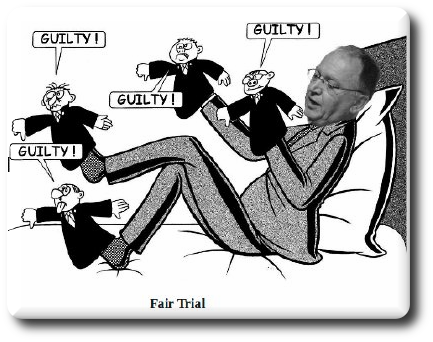

SUEPO, the staff union of the EPO (which predates even the EPO itself!), wrote a letter about 3 years ago. With Battistelli due to leave the Office in half a year (putting aside the fact that, as we last noted last night, what we see in the EPO right now may be tandemocracy), we need to look back and understand who and what led to the escalation. We reluctantly accept that Europe might descend into Kremlin standards (like tandemocracy) with ENA in positions of power, not only in the French government but also international institutions like CEIPI in France (to be chaired by Battistelli).
President refuses mediation proceedings proposed by the Munich Employment Court
Dear colleagues,
We reported on 7 May 2014 on the SUEPO Berlin and SUEPO Central case against the EPO, which has been transferred to Munich. In the first hearing on 17 April 2014, the judge formally requested the parties to consider a judicial mediation according to ۤ 54(6) ArbGG or a conciliation procedure according to ۤ 54a ArbGG.
SUEPO Berlin and SUEPO Central immediately confirmed their agreement to the procedures. The EPO first asked for an extension of the deadline, and finally stated to the Court on 27 May 2014 that:
The EPO is neither interested in a judicial mediation nor in a conciliation procedure.
The EPO pretends in its reply that the following points support its position: -ïâ· A judicial mediation would not be possible because of the immunity which cannot be waived. -ïâ· Beside the legal issue of the immunity and the judicial proceedings, the President refuses any mediation approach, arguing that SUEPO's behaviour in advance to their complaints with national Courts was inappropriate. -ïâ· The agreement of SUEPO to the procedures should be regarded in the light of further litigation in which SUEPO is engaged, also against the Federal Republic of Germany. -ïâ· A conciliation procedure would also not be possible because of the immunity. -ïâ· In addition, the EPO considers the “campaign” of SUEPO against the Office and its President as inacceptable and disproportionate. This renders the possibility of reaching a friendly agreement almost impossible. -ïâ· The EPO has already reacted on the “unrest” by introducing “social democracy”. This project should improve the internal dialogue between management and staff in the Office. -ïâ· The legal status of SUEPO is unclear. -ïâ· Furthermore SUEPO has no standing according to the internal legal basis of the EPO. -ïâ· A wish for change cannot not be pursued by legal, but by political means only.
You may now assess yourselves Mr Battistelli’s repeated indication that his door remains open. The Administrative Council should also consider in how far the social partners – SUEPO and the President – showed a sense of responsibility in order to achieve a real and fruitful dialogue.
We regret that the President has not accepted our proposal for a new basis of social dialogue, see draft proposal for a “Framework Agreement”. His refusal of mediation proceedings as proposed by the Munich Employment Court and the reasoning given demonstrate a lack of openness for dialogue. It also shows the continued failure to recognise the legitimacy of SUEPO as a social partner, a clear violation of fundamental rights, and a lack of understanding of the concerns of staff. There is also a tone in the reasoning which suggests the belief of the President that he is above the law.
After a further hearing (an exact date has not yet been set), the Munich Court will now have to decide on the claims which are: the official recognition of SUEPO as social partner, the abandonment of the new strike regulations, and the lifting of the email blockage for SUEPO. We will keep you informed.